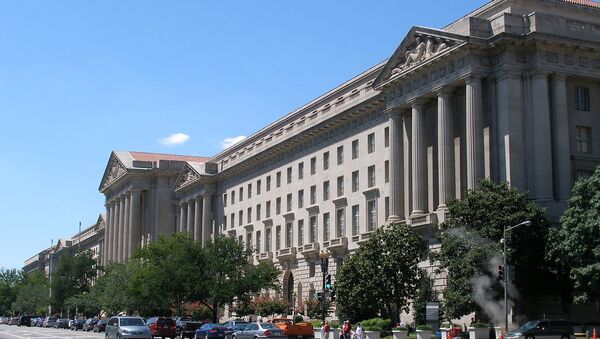MOSCOW, August 14 (RIA Novosti) - Several US organizations uniting journalists, editors, environmentalists and freedom of speech advocates sent a letter to the United States Environmental Protection Agency (EPA) criticizing a policy of theirs which is potentially stifling to free expression.
The new EPA policy, outlined in a memorandum by its chief of staff Gwendolyn Keyes Fleming, requires advisory committee members who receive requests from the public and the press “to refrain from responding in an individual capacity.”
All requests, both formal and informal, have to be routed through EPA officials, thus reinforcing the perception that “the agency prioritizes message control over the ability of scientists who advise the agency to share their expertise with the public,” the letter says.
The letter outlines several concerns associated with the memorandum. It undermines “efforts to increase transparency,” “contradicts the EPA’s new scientific integrity policy as well as the Science Advisory Board’s handbook.”
Moreover, the memorandum sets “a poor precedent for other agencies and departments,” the authors of the letter said, citing the National Oceanic and Atmospheric Administration (NOAA), which took a strikingly different approach to protecting scientific integrity.
“To support a culture of openness, one of the policy’s key provisions affirms unequivocally that NOAA scientists may speak freely with the media and public about scientific and technical matters based on their official work without approval from the public affairs office or their supervisors,” the letter quoted NOAA administrator Jane Lubchenco as saying when the agency’s scientific integrity policy was released.
The letter concludes that since more than 1,000 advisory committees with more than 60,000 members advise the federal government on a wide range of issues that directly impact the public, “many top experts will find these conditions to be untenable, and will refuse to serve.”
“We need the best and brightest experts to advise the federal government, and should not be setting up barriers to their service,” the letter says.




